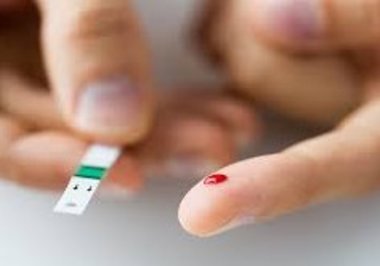12 March 2020
This Eating Disorders Awareness week, we look at a King’s Health Partners pilot that is supporting people with type 1 diabetes and disordered eating (T1DE), a year on from when it started.
In March 2019, T1DE was launched. T1DE brings a multi-disciplinary network of mental health, diabetes, diet and nutrition healthcare professionals together from across our partner organisations to provide patient focused treatment for people living with type 1 diabetes and disordered eating.
The pilot is for patients who restrict their insulin intake to lose weight, which can lead to serious complications, including blindness and amputations. It is most common in young people aged between 15 and 30. The pilot has already accepted 75% of its target in patient referrals.
The T1DE team work together to improve integrated care for diabetes patients by:
- identifying depression and helping to treat it
- exploring the negative feelings patients experience towards diabetes and their fear of weight gain from insulin
- helping patients set important goals such as how to manage their diabetes and their psychological health
- increasing social support for patients by providing a space for patients’ families and partners to attend family therapy sessions, so they understand how to provide support at home
- supporting patients working towards the right amount of insulin for their best health, and
- helping patients better understand how their psychological health interacts with the management of their diabetes.
Holistic treatment of mental and physical needs
Each treatment plan is patient-led and agreed after an initial assessment by the T1DE team. Therapy varies depending on the physical and mental health needs of the patient.
During treatment, some patients spend time as inpatients at a specialist eating disorders unit at South London and Maudsley NHS Foundation Trust to receive more intensive therapeutic treatment. The mental health team, led by consultant psychiatrist Prof Hubertus Himmerich, works closely with the T1DE team who regularly check-in to find out how patients are doing during their inpatient stay.
The T1DE team also support the mental health team in growing their knowledge in type 1 diabetes. Treatment for a serious long-term medical condition such as type 1 diabetes, in addition to the complexities of an eating disorder, can increase the risk of complications to patients, which is why the breadth of knowledge shared by our multi-disciplinary team is essential for integrated patient care.
Three-quarters of the pilot’s target referrals have been accepted
The pilot service aims to offer a minimum of 12 months treatment to 40 patients by spring 2021. It’s intended to treat patients who are most severely affected by T1DE and has already accepted more than 30 referrals from specialist diabetes centres across all five London Sustainability and Transformation Partnerships.
Their goal is to advance clinical outcomes for patients by improving their blood sugar or glucose levels to help reduce the risk of diabetes complications. The pilot’s ambition is also to improve patients’ quality of life, including psychological and social aspects such as treatment for depression, anxiety, eating disorders and helping people to return to work.
Glycated haemoglobin (HbA1c) gives clinicians an overall picture of what a patient’s average blood sugar levels are over a period of time. The aim of the pilot is to reduce HbA1c by 1% during 12 months of treatment, which for people with type 1 or type 2 diabetes cuts the risk of microvascular (small artery disease) by 25%. Another result the pilot is hoping to achieve is to reduce the total number of unscheduled patient visits to A&E by 10% during their 12-month treatment.
T1DE works closely with colleagues from the Royal Bournemouth and Christchurch Hospitals and Dorset HealthCare University NHS Foundation trusts, who provide a pilot service in south England for patients less severely affected by T1DE. The teams have formed a clinical steering group to further develop pathways and provide national guidance on managing the risks around patients with eating disorders as well as type 1 diabetes.
Talking about the T1DE pilot, Prof Hubertus Himmerich said:
Working with staff across King’s Health Partners organisations is a real added value for our T1DE pilot, because it means we can take into account both the physical and mental needs of patients, which ultimately translates into better care.
To find out more about our King’s Health Partners Diabetes Endocrinology Obesity Institute , the ways you can get involved and learn more about projects like T1DE, visit the King’s Health Partners website.





